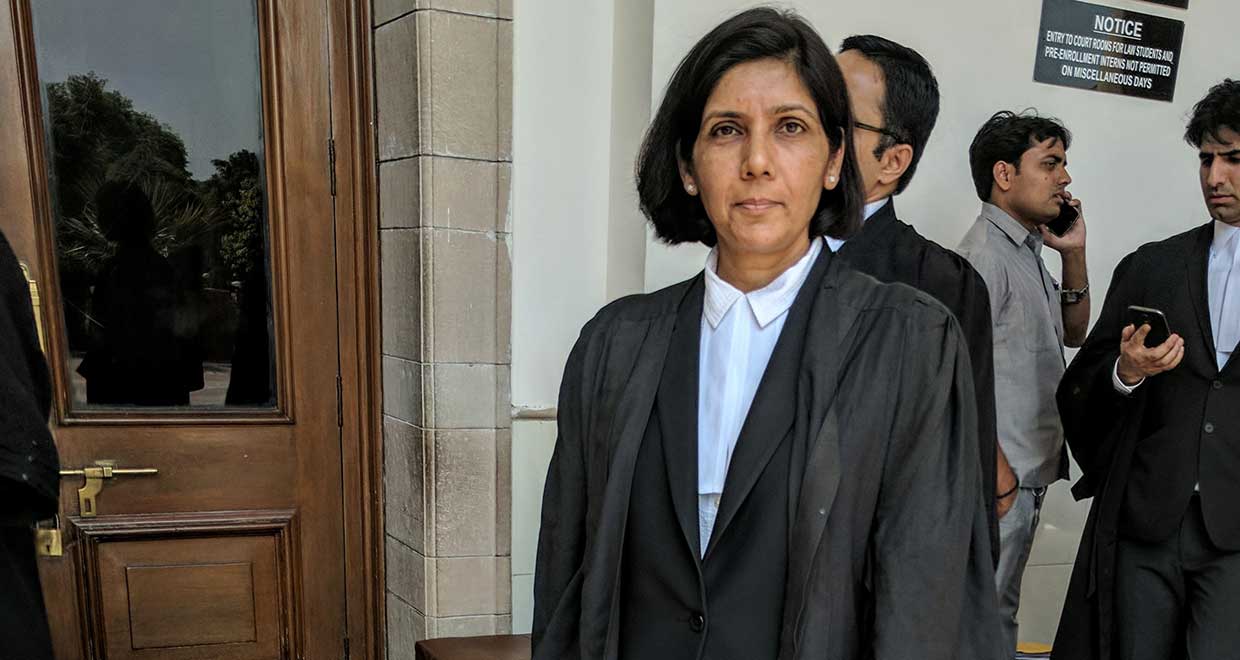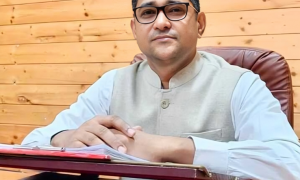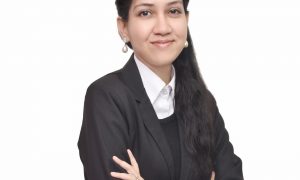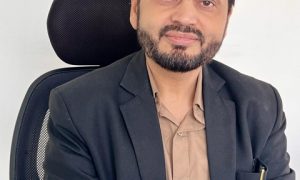Ameeta Duggal graduated in law from Campus Law Center, Delhi University, in 1991. She started her career with Mr. Ashwini Kumar, former Minister of Law and currently the special envoy to Japan. She then worked briefly with Amarchand Mangaldas Shroff before joining Associated Law Advisers. Ameeta was awarded a British Chevening Scholarship by the Foreign and Commonwealth Office to study at the College of Law, York from 1996 – 1997. Thereafter she worked briefly in the London office of Clifford Chance, one of the world’s largest law firms before returning to India. Ameeta founded DGS Associates in 2004.
In this interview we speak to her about:
- The legal industry in the ’90s
- Working at AMS
- Winning the British Chevening Scholarship by the Foreign and Commonwealth Office
How would you like to introduce yourself to our readers?
I am a somewhat unconventional lawyer who has always tread the unchartered path. There has been no planning that has gone into charting my professional growth. This has helped me in exploring various areas of law, which may have been lost to me had I proceeded with a predeteremined growth trajectory. I do not believe in compartmentalising my practice areas and have tried to explore various aspects of law. I started my professional career as a pure litigator and have continued to keep litigation as one of my practice areas irrespective of the fact that over the years I have moved to a completely different line of practice, being my trade laws practice, which I started in 2008. I believe that my strength lies in drafting and negotiations rather than arguing in Court. While I am immensely passionate about my work, I ensure that it never deprives me of my love for travel so I strive to make my work complement my travels to the greatest extent possible.
Tell us a little about your days in law school.
I studied law from the Faculty of Law, Campus Law Centre, Delhi between 1989 and 1991. In those days, Law was a residual career option since majority of the law students were writing their Civil Services exams. There were just a handful of us who were there to pursue law as a career option. The others just wanted to have a Plan B should they fail to clear the Civil Services exam or such other options.
Having come from an all girls’ college, Lady Shri Ram, life in he Delhi University campus was an experience with a varied mix of students. One of the incidents that has, however, stayed with me is from a class in Negotiable Instruments. In my first semester, one of our Professors had asked us a question pertaining to the bouncing of a cheque and I remember getting up and saying that “my common sense tells me…” The professor told me something that I have never forgotten. He said that we must always remember that law is not about “common sense” but what is provided in the statute. Over the years, I have often been reminded of this saying and how true it holds.
What are your areas of specialisation in law?
Specialisation in a given field of law is a fairly recent practice in Law. During our days at the Law Faculty we neither specialised in any specific area nor were we required to intern. Those who belonged to a family of lawyers may have spent time interning. But the rest of us had not seen a lawyers’ chamber till the time we started to looking for work. Accordingly, there were no areas of specialisation but we had areas of interest. I was always interested in contractual and corporate laws. We, however, did not have the option of International trade laws as a subject.
I personally do not conform to specialisations. I have always been open to assisting a client with all areas of law. The only distinction I draw is between civil and criminal laws and I have stayed away from criminal law in all my years of practicing law. Other than that I have worked on varied assignments, including environmental audits, project financing, mergers & acquisitions, International commercial arbitrations and litigation (both as a Government and private counsel). It is only recently, that I have started focusing more on International trade and mergers & acquisition as my preferred areas of work.
While on the issue of specialisation, I would like to share one of my experiences at Clifford Chance when I was working with them briefly. One morning we received a fax from a client with some four to five questions, including queries on tax and securitisation. The fax was shared across three floors depending on the areas of law involved. This was in my initial week at Clifford Chance. Having worked in India for a few years by then I was somewhat surprised since in those days, a client query like that would have come to our table in India and we would have responded to all of them, more like a single window clearance. In my opinion, it is more comforting for a client to go to a single person for advice rather than being sent from one team to the other.
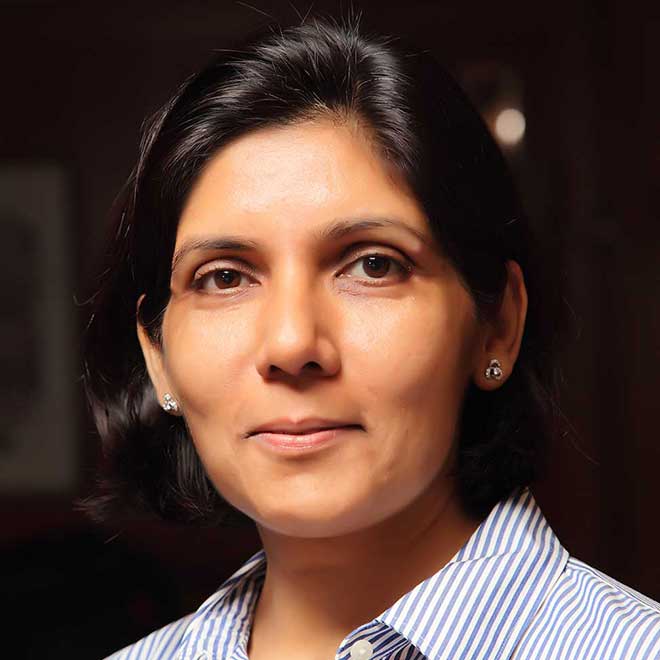
How were the first few years after your graduation?
Unlike today, when students spend considerable time interning and gaining practical experience, for us studying Law was essentially an academic exercise, which guided us through the legal fundamentals and taught us what and how to look for the answer to a query received from a client. However, what we learnt at the law faculty was far removed from the real world practice. Objectively speaking we cannot be taught how to be a lawyer sitting in a classroom. Legal practice can only be learnt standing in a courtroom, sitting in a board room negotiating across the table or sitting across a Government authority proposing policy changes.
This is where I owe a lot to the chambers of Dr. Ashwani Kumar (including my gown, which traditionally is presented by one’s senior) with whom I worked for almost a year. We used to be paid pittance in those days but the experience we gained was immense. Dr. Kumar was in those days a standing counsel for the Delhi Electricity Supply Undertaking (DESU), one of the biggest litigators in the Delhi High Court. On any given day we had at least ten to twelve cases listed in the High Court and we had no option but to start arguing from the very first day. Credit is also due to the judges who encouraged freshers to seize the opportunity and argue rather than seek an adjournment on the ground that the senior lawyer was unavailable. I have had a very special hearing before a Division Bench of Justice B.N. Kirpal (former Chief Justice of India) and Justice Sunanda Bhandare, who coaxed me into arguing a petition in the very first month of having joined Dr. Kumar; guiding me through the arguments and eventually dismissing the petition in my favour. Those were days filled with excitement and exhaustion but the thrill of getting a good order from the High Court was priceless. I learnt to be a lawyer overnight.
Tell us about working at a Tier-I firm such as Amarchand Mangaldas Shroff.
Amarchand Mangaldas Shroff is undoubtedly a sought after firm now and also in those days when it was not so huge. I had the privilege of working directly with Pallavi Shroff and her team, I realised in my first few days there that I was not meant to work in a big law firm. I tendered my resignation within weeks of my joining that firm to move to a start up firm, Associated Law Advisers (ALA), which was still getting established in terms of office space. I spent almost eleven years with ALA and left only to start my own law firm.
ALA is where I grew as a lawyer. We started as a small team of four lawyers (two partners and two associates). Each one of us supported the other and we learnt to do everything on our own – from filing to researching to drafting to appearing in courts and before arbitrators and to do large sized acquisitions, legal and environmental due diligences. My first acquisition was when Whirlpool acquired Kelvinator. I learnt as we moved through the acquisition and all credit goes to my partners, Mr. O.P. Bhardwaj and Ms. Lira Goswami, who never hesitated in giving us complete charge of a client file while keeping a broad check on the deliverables. I owe my growth as a lawyer to my years in ALA.
Tell us about winning the British Chevening Scholarship by the Foreign Commonwealth Office.
Applying for the British Chevening Scholarship was almost an accident. My then senior partner, Lira Goswami, mentioned the scholarship while we were waiting for our matter. From Court I went to the British Council to collect the form only to learn that I had just a day to submit it. Of course, I never expected to be selected but I did get an interview call. The interview panel comprised two faculty members of the college of law, York, a senior counsel from India and a representative of the Foreign Commonwealth Office. The counsel posed some direct questions on the various provisions of the Companies Act. After having fielded a few questions I remember telling him that as a lawyer I am aware which legislation I need to check but I was not aware of each and every provision of the Companies Act. The intent was not to be rude but it was an irrational expectation for a young lawyer to be familiar with more than 500 provisions of the Companies Act. I do believe that this response got me the scholarship.
How was your experience at College of Law, York?
We were a group of twelve lawyers from all over India who were sent to the College of Law, York. Most of us were travelling outside India for the very first time and we were indeed an excited bunch of young lawyers who landed in York. The course was very thoughtfully conceived with an amazing faculty. We forged new friendships, not only within the group but with other law students at the College and with our faculty. The friendships have continued and we also continue to be referral partners for each other.
What made our days at the College of law most memorable and fun filled is the fact that we were all practicing law already and had the security of having a job waiting for us back home. That sense of security eased the pressures and made the entire programme a huge learning experience. We got an opportunity to work with some of the biggest law firms in London.
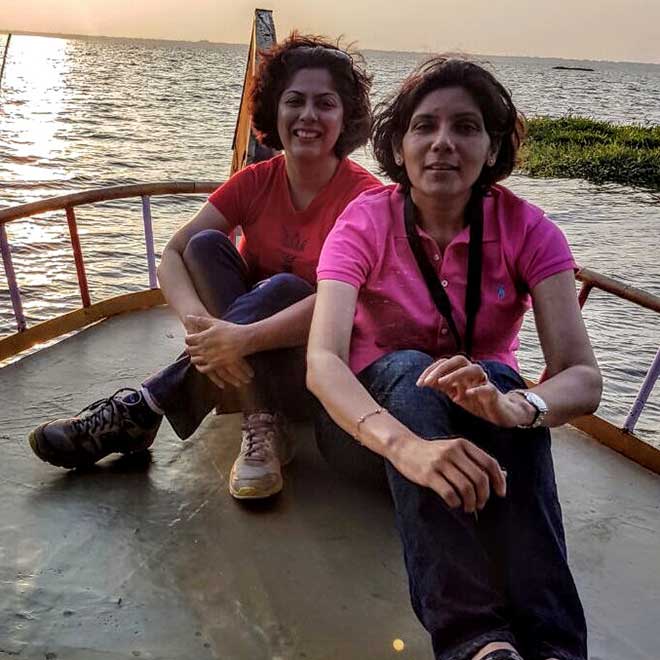
Which is the ideal time to do an L.L.M?
From my personal experience, I would recommend pursuing LL.M. only after having gained some work experience. I believe a LL.M. programme will be far more beneficial and focused if pursued after a few years of practice.
Please elaborate on your work experience at Clifford Chance.
The scholarship offered by the Foreign Commonwealth Office comprised two sections. First was a programme at the College of Law, York and second was a work stint at the law firms selected and allotted by them. I was sent to Clifford Chance as part of that programme. Working in a huge law firm like Clifford Chance, which at that time was the biggest law firm globally, was an experience in itself. It gave me the confidence to be able to stand on my own in the midst of an ocean of lawyers. Although I was offered a role in the firm, I longed to return to ALA and declined the offer. I have not regretted my decision ever as I do not think I would have evolved into a risk taking lawyer that I am today if I had worked in the secure confines of a large law firm as opposed to a small boutique firm like ALA.
What or who motivated you to take the leap of faith to found your own law firm?
DGS Associates owes its existence to ALA and the work culture that we imbibed there. The sense of self sufficiency and independence instilled by Mr. Bhardwaj and Lira gave me the courage to move out and start my own firm. Having worked with ALA since the days when the ALA office was being first set up, I was already familiar with the grind that setting up of a law office entailed. However, the thrill of starting one’s own practice is unparalleled.
Although I moved out of ALA with another lawyer there, Niti Sudhakar, we never really severed our ties with ALA. This was easy since we did not try and leave with any existing client of ALA. We moved out without any announcements and started afresh. Admittedly, those were challenging times as we had no continuing client. However, our friendship gave each of us the strength to persevere and that friendship continues to be the central pillar on which DGS stands even today.
With regard to DGS Associates, what is your vision for the firm?
At DGS, we pride ourselves for being completely relationship driven, be it with our staff, colleagues or clients. We are a small firm with a very congenial atmosphere. We would want to continue with that. We see ourselves as a well entrenched boutique law firm where the client comes never to leave. Our clients treat us as part of their management and we are happy to be in that space. We work with huge corporates as well as mid to small sized companies and individuals. We promote start ups and have always advised them basis the understanding that if they ever get funding they will pay our legal fees. The virtues of strict timelines and economies are deeply entrenched in our work culture and we never miss our deadlines. DGS has a very different work culture where associates are expected to act responsibly and independently. The stress is on timely delivery and quality output rather than the number of hours that they put in at work.
Give us a brief capsule of the life of a partner and your average working day experience.
True to the spirit of DGS, we try and maintain a balance between our work and personal lives. While we are at work, the office functions almost like a library with very focused work but we try and shut office in good time so that we all can head back home to spend time with our families. Without compromising on our work commitments, the partners also ensure time out together. Increasingly, there is lesser time available with our travel and work commitments but we always make an effort to optimise our time off. The firm has a policy of all lawyers lunching together so as to be able to get to know each other at a personal level.
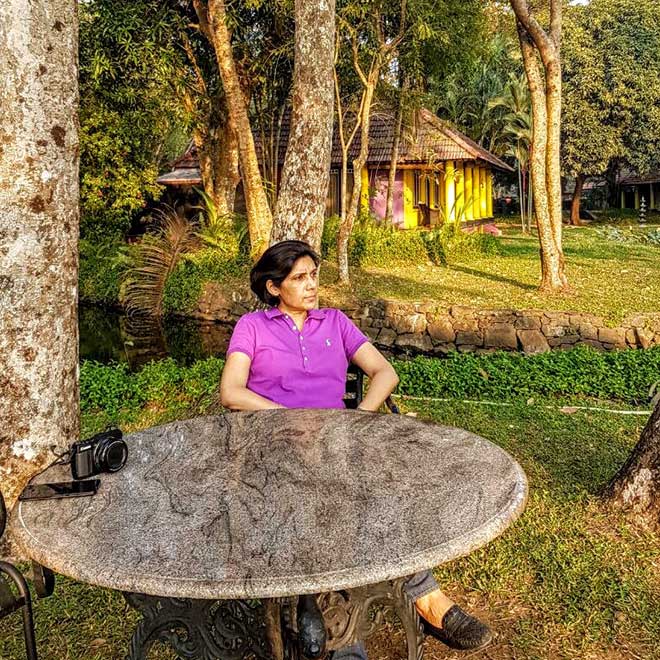
Is there any other suggestion you would like to give to our budding lawyers?
I can only say that as budding lawyers give your profession all you have as this is the time when you have the energy and enthusiasm to focus entirely on work. Be open to doing all kinds of work at your work place. It gives you a better appreciation of the work that is happening around you. Most importantly, I always encourage budding lawyers to gain some experience in litigation since you cannot be a complete lawyer without knowing how your judicial system works and how the judges think when dealing with a given dispute.

